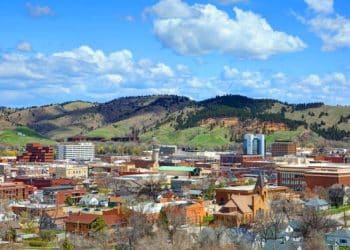Folk music, with its rich tapestry of traditions and storytelling, has woven itself into the cultural fabric of societies around the world. At its core, folk music is an expression of the human experience, reflecting the joys, sorrows, struggles, and triumphs of everyday life. Within this diverse genre, certain voices have risen to prominence, captivating audiences with their soul-stirring melodies and poignant lyrics. In this exploration of the top 15 best folk music singers of all time, we embark on a journey through the annals of musical history, celebrating the individuals who have left an indelible mark on the genre. From timeless troubadours whose ballads have been passed down through generations to contemporary artists breathing new life into age-old traditions, each singer on this list represents a unique chapter in the story of folk music. Through their evocative performances and profound connection to their roots, these artists have transcended boundaries of time, culture, and language, leaving an enduring legacy that continues to resonate with audiences worldwide. Join us as we pay homage to the luminaries of folk music, whose voices echo across the ages, reminding us of the power of song to unite, inspire, and uplift the human spirit.
1. John Prine
John Prine stands as an iconic figure in the realm of folk music, earning his place as one of the best folk music singers of all time. Born in 1946, Prine’s songwriting prowess and distinctive voice have left an indelible mark on the genre. His career spans several decades, and his influence extends far beyond his impressive catalog of songs. Prine’s ability to craft poignant and often humorous narratives, combined with his masterful guitar skills, set him apart as a true storyteller. His debut self-titled album, released in 1971, showcased his exceptional songwriting with tracks like “Angel from Montgomery” and “Sam Stone.” Throughout his career, Prine continued to captivate audiences with his sincere and evocative performances, earning him the admiration of fellow musicians and the enduring love of his fans.
John Prine’s impact on folk music goes beyond the stage; his work resonates with listeners on a deeply personal level. His ability to distill complex emotions into simple yet profound lyrics has solidified his status as a folk music legend. Prine’s legacy lives on through his timeless songs, which explore the human experience with authenticity and compassion. His influence is evident in the work of countless contemporary folk artists who continue to draw inspiration from his storytelling prowess and melodic craftsmanship. John Prine’s enduring contributions to the folk music genre make him a beloved figure, celebrated for his ability to connect with audiences through the universal language of music.
2. Steeleye Span
Steeleye Span, a pioneering force in the world of folk-rock, secures its place among the top best folk music groups of all time. Formed in 1969, Steeleye Span has become synonymous with innovation, fusing traditional folk tunes with contemporary rock elements to create a distinctive and influential sound. The band’s ever-evolving lineup, anchored by the ethereal vocals of Maddy Prior, has consistently pushed the boundaries of folk music. Their breakthrough album, “Hark! The Village Wait” (1970), marked the beginning of a remarkable journey that would see them exploring the rich tapestry of British folklore and history through their music.
Steeleye Span’s enduring legacy lies not only in their musical experimentation but also in their commitment to preserving and revitalizing traditional folk songs. Over the years, their discography has been a treasure trove of both original compositions and reimagined classics, with hits like “All Around My Hat” achieving mainstream success. Their ability to seamlessly blend ancient narratives with contemporary instrumentation has inspired generations of musicians, contributing significantly to the evolution of folk music. Steeleye Span’s longevity and artistic integrity make them a cornerstone in the folk-rock genre, leaving an indelible mark on the musical landscape and continuing to enchant audiences with their timeless melodies.
3. Neil Young
Neil Young, an enduring and influential figure in the folk and rock music scenes, solidifies his position as one of the best folk music singers of all time. Born in 1945, Young’s prolific career spans over five decades, marked by his distinctive voice, poetic songwriting, and versatile musicality. From his early days with Buffalo Springfield to his solo ventures and collaborations with Crosby, Stills, Nash & Young, Neil Young has consistently pushed boundaries and defied genre conventions. His introspective and often politically charged lyrics, coupled with his raw and emotive delivery, have resonated with audiences worldwide.
Young’s impact on folk music lies in his ability to seamlessly navigate between acoustic ballads and electric anthems, creating a rich and diverse body of work. Iconic albums like “Harvest” (1972) showcase his mastery of both intimate, acoustic compositions and bold, electric arrangements. Neil Young’s commitment to authenticity and artistic exploration has influenced generations of musicians, earning him a revered status in the folk music pantheon. Whether delving into the complexities of love, environmental issues, or societal challenges, Young’s songs continue to strike a chord with listeners, making him a timeless and essential presence in the world of folk music.
4. Crosby, Stills, Nash, & Young
Crosby, Stills, Nash & Young, a supergroup that emerged during the late 1960s, stands as a powerful collective and one of the best folk music collaborations of all time. Comprising David Crosby, Stephen Stills, Graham Nash, and Neil Young, each already accomplished musicians in their own right, the quartet brought together harmonies that became synonymous with the folk-rock movement. Their eponymous debut album in 1969 introduced audiences to an intricate blend of vocal harmonies, intricate acoustic arrangements, and socially conscious lyrics, setting a new standard for folk rock. The group’s ability to seamlessly weave their distinct voices and musical styles into a cohesive sound has left an indelible mark on the genre.
Crosby, Stills, Nash & Young’s impact on folk music extends beyond their harmonious collaboration. The political and social commentary in their lyrics, evident in iconic songs like “Ohio” and “Teach Your Children,” reflects the tumultuous times in which they emerged. Despite occasional hiatuses and solo pursuits, the group’s sporadic reunions have consistently garnered immense excitement and nostalgia, showcasing the enduring magic of their collective musical chemistry. Crosby, Stills, Nash & Young’s influence on subsequent generations of folk and rock musicians cements their legacy as trailblazers who transcended individual talents to create a harmonious and influential force in folk music history.
5. John Denver
John Denver, with his wholesome image, heartfelt lyrics, and warm tenor voice, is undoubtedly one of the best folk music singers of all time. Born Henry John Deutschendorf Jr. in 1943, Denver’s career soared to prominence in the 1970s, and he became a symbol of the folk and country crossover. With hits like “Take Me Home, Country Roads” and “Annie’s Song,” Denver’s music often celebrated the simplicity of life, nature, and love, resonating with a broad audience. His genuine connection to the themes he explored in his songs contributed to his universal appeal.
Denver’s impact on folk music lies not only in his chart-topping success but also in his ability to bridge divides between genres. While firmly rooted in folk, his music touched upon elements of country, pop, and even environmental activism, showcasing his versatility and wide-reaching influence. Denver’s legacy endures through his timeless classics, which continue to evoke a sense of nostalgia and comfort. Despite his tragic death in 1997, John Denver’s music remains a testament to the enduring power of folk, reminding listeners of the beauty found in the simplicity of life’s melodies.
6. Donovan
Donovan, born Donovan Phillips Leitch in 1946, stands as a charismatic and influential figure in the folk music landscape, earning his place among the best folk music singers of all time. Emerging during the 1960s folk revival, Donovan’s distinctive blend of folk, psychedelic, and pop elements set him apart as a unique and innovative artist. His poetic lyrics, combined with his gentle and melodic delivery, captivated audiences and contributed to the broader cultural shifts of the era. Donovan’s breakthrough came with hits like “Catch the Wind” and “Sunshine Superman,” showcasing his ability to craft introspective and whimsical songs that transcended traditional folk boundaries.
A key player in the British folk scene, Donovan’s influence extended beyond his solo career. His collaborations with iconic artists like The Beatles, particularly during the “White Album” sessions, further solidified his impact on the evolving sound of folk and popular music. Donovan’s exploration of Eastern mysticism and incorporation of diverse musical elements into his work made him a trailblazer, paving the way for future folk artists to experiment with genre boundaries. His enduring legacy is reflected not only in his chart-topping success but also in the continued admiration of musicians who draw inspiration from his eclectic and pioneering approach to folk music.
7. Kris Kristofferson
Kris Kristofferson, born in 1936, is a revered figure in the realm of folk music, earning his place among the best folk music singers of all time. With a gravelly voice and poetic songwriting, Kristofferson has left an indelible mark on the genre since the 1960s. His journey to musical stardom was unconventional, transitioning from a military career to pursue his passion for songwriting. Kristofferson’s raw and emotionally charged lyrics often delved into themes of love, freedom, and introspection, striking a chord with listeners seeking authenticity in their music.
Kristofferson’s impact on folk music is not only marked by his solo career but also by his contributions as a songwriter, penning hits for artists like Johnny Cash and Janis Joplin. His own performances, characterized by a mix of country, folk, and rock influences, showcased a distinctive blend that resonated with a diverse audience. Classics like “Me and Bobby McGee” and “Sunday Mornin’ Comin’ Down” are testaments to his storytelling prowess and ability to capture the essence of the human experience. Kris Kristofferson’s enduring legacy is celebrated not just for his contributions to folk music but also for his influence on the broader landscape of American songwriting and storytelling.
8. Harry Chapin
Harry Chapin, born in 1942, left an enduring legacy as one of the best folk music singers of all time, known for his storytelling prowess and compassionate lyricism. Emerging in the early 1970s, Chapin’s music was characterized by its narrative richness and social consciousness. His ability to weave intricate tales into melodic compositions, often accompanied by his guitar, resonated with audiences seeking a deeper connection to the human experience. Chapin’s breakthrough came with the release of “Taxi” and “Cat’s in the Cradle,” songs that showcased his ability to explore complex emotions and societal issues.
Beyond his musical talents, Chapin’s commitment to philanthropy added another layer to his impact on folk music. His advocacy for social causes, including hunger relief, reflected in his creation of the organization World Hunger Year (now WhyHunger), demonstrated a deep sense of responsibility and compassion. Tragically, Chapin’s life was cut short in 1981, but his impact endures through the timeless nature of his songs and the charitable work that continues in his name. Harry Chapin’s contribution to folk music lies not only in the beauty of his melodies but also in the enduring messages of empathy and social awareness that continue to inspire audiences to this day.
9. Joni Mitchell
Joni Mitchell, born in 1943, stands as a groundbreaking and influential figure in folk music, earning her place among the best folk music singers of all time. With an extraordinary ability to blend poetic lyrics, intricate guitar work, and an unmistakable voice, Mitchell emerged during the 1960s folk movement and evolved into a genre-defying artist. Her early works, including albums like “Blue” and “Court and Spark,” showcased a unique fusion of folk, rock, and jazz influences, setting a new standard for artistic expression in the genre.
Mitchell’s impact on folk music extends beyond her role as a singer-songwriter; she is a trailblazer who challenged conventions and expanded the possibilities of the genre. Her exploration of personal and societal themes, combined with her innovative guitar tunings, has influenced countless musicians across genres. Iconic songs like “A Case of You” and “Big Yellow Taxi” are testaments to Mitchell’s ability to distill complex emotions into evocative and timeless compositions. Her artistic evolution and unwavering commitment to authenticity have solidified her as a musical icon whose influence continues to reverberate through the fabric of folk and popular music.
10. James Taylor
James Taylor, born in 1948, is an enduring and beloved figure in the realm of folk music, earning his distinction among the best folk music singers of all time. With his soothing voice, intricate guitar playing, and introspective songwriting, Taylor has been a mainstay since the late 1960s. His self-titled debut album, released in 1968, marked the beginning of a remarkable career that would see him become one of the quintessential singer-songwriters of his generation. Taylor’s unique blend of folk, pop, and rock elements, coupled with his gift for crafting poignant and relatable lyrics, has garnered widespread acclaim.
Key to Taylor’s impact on folk music is his ability to create a sense of intimacy through his music. Hits like “Fire and Rain” and “You’ve Got a Friend” showcase his talent for capturing the human experience with honesty and simplicity. Taylor’s influence is not limited to his own success; his collaborations with fellow musicians and his role in shaping the singer-songwriter movement have left an indelible mark on the genre. With multiple Grammy Awards and a place in the Rock and Roll Hall of Fame, James Taylor’s enduring contributions to folk music continue to resonate with audiences, making him a cherished icon in the landscape of acoustic storytelling.
11. Bob Dylan
Bob Dylan, born Robert Zimmerman in 1941, is an iconic and revolutionary figure in the world of folk music, widely regarded as one of the best folk music singers of all time. Emerging in the early 1960s during the folk revival, Dylan quickly became a voice of a generation with his poetic lyrics, distinctive voice, and unwavering commitment to social and political commentary. His early works, including albums like “The Freewheelin’ Bob Dylan” and “Highway 61 Revisited,” showcased his ability to blend folk traditions with rock influences, forever changing the landscape of popular music.
Dylan’s impact on folk music extends beyond his role as a performer; his influence as a songwriter is immeasurable. Classics like “Blowin’ in the Wind” and “The Times They Are a-Changin'” became anthems of social change, reflecting the turbulent times of the 1960s. The enigmatic artist continued to evolve, embracing different genres and styles throughout his career, from folk and rock to country and blues. Awarded the Nobel Prize in Literature in 2016, Dylan’s lyrical brilliance and fearless exploration of musical boundaries have left an enduring mark on the folk music genre, solidifying his status as a cultural icon and a trailblazer in the history of modern music.
12. Pete Seeger
Pete Seeger, born in 1919, stands as a towering figure in the history of folk music, earning his place among the best folk music singers of all time. A dedicated folklorist, activist, and performer, Seeger’s career spanned over seven decades, leaving an indelible mark on American music and social justice. An influential member of The Weavers and a solo artist, Seeger’s banjo-picking and distinctive voice became synonymous with folk music during the mid-20th century.
Seeger’s impact on folk music is intertwined with his commitment to social and political causes. Songs like “If I Had a Hammer” and “Where Have All the Flowers Gone” became anthems for the civil rights and anti-war movements. His advocacy for environmental issues, workers’ rights, and equality showcased the power of folk music as a tool for change. Seeger’s banjo-driven renditions of traditional folk songs and his prolific songwriting contributed to the genre’s enduring popularity.
Beyond his musical contributions, Seeger’s influence extended to mentoring and inspiring subsequent generations of musicians, solidifying his legacy as a cultural force. His belief in the power of communal singing and his unwavering commitment to social activism have left an indelible imprint on the folk music landscape, making Pete Seeger a cherished and revered figure in the annals of American music history.
13. Leonard Cohen
Leonard Cohen, born in 1934, stands as a poetic and contemplative presence in the world of folk music, securing his position among the best folk music singers of all time. Emerging in the 1960s, Cohen’s deep baritone voice, profound lyrics, and distinctive blend of folk, rock, and blues elements set him apart as a unique and influential artist. Known for his introspective and often spiritual explorations, Cohen’s songs, such as “Hallelujah” and “Suzanne,” have become timeless classics celebrated for their emotional depth and lyrical complexity.
Cohen’s impact on folk music extends beyond his role as a singer-songwriter; his contributions as a poet and novelist further showcase his literary prowess. His ability to navigate themes of love, spirituality, and the human condition with eloquence and depth has earned him a revered status among critics and fans alike. Cohen’s later works, including the critically acclaimed albums “You Want It Darker” and “Popular Problems,” demonstrated his enduring creativity and relevance in the music world.
The Canadian artist’s legacy is marked not only by his musical achievements but also by his influence on subsequent generations of musicians. Leonard Cohen’s ability to distill profound emotions into exquisite verses and melodies has left an indelible mark on the landscape of folk music, making him a cherished and enduring figure in the canon of contemporary songwriting.
14. Simon & Garfunkel
Simon & Garfunkel, consisting of Paul Simon and Art Garfunkel, epitomize harmony and melodic elegance, earning their place among the best folk music duos of all time. Emerging in the 1960s, their seamless vocal blend and thoughtful songwriting captivated audiences worldwide. Their breakthrough album, “Wednesday Morning, 3 A.M.,” marked the beginning of a prolific partnership that would produce timeless classics such as “The Sound of Silence,” “Mrs. Robinson,” and “Bridge Over Troubled Water.”
Simon & Garfunkel’s impact on folk music goes beyond their chart-topping success; their songs became anthems for a generation navigating social and cultural shifts. The duo’s ability to capture the zeitgeist with poetic lyrics and haunting melodies contributed to their enduring popularity. Simon’s intricate guitar work and Garfunkel’s angelic tenor voice created a sonic synergy that set them apart in the folk landscape.
Despite occasional tensions and eventual solo pursuits, Simon & Garfunkel’s influence remains profound. Their music continues to resonate with listeners, evoking a sense of nostalgia and timelessness. Inducted into the Rock and Roll Hall of Fame, Simon & Garfunkel’s legacy endures not only for their contribution to folk music but also for their lasting impact on the broader spectrum of popular music.
15. Cat Stevens
Cat Stevens, born Steven Demetre Georgiou in 1948, holds a distinctive place among the best folk music singers of all time. Rising to prominence in the early 1970s, his warm and soulful voice, coupled with introspective songwriting, resonated with audiences seeking emotional depth and introspection. Albums like “Tea for the Tillerman” and “Teaser and the Firecat” showcased Stevens’ ability to craft melodic folk-pop songs that delved into themes of love, spirituality, and personal reflection.
Stevens’ impact on folk music is marked by the timeless quality of his compositions. Classics such as “Wild World,” “Father and Son,” and “Peace Train” have maintained their cultural relevance, continuing to captivate new generations. His exploration of diverse musical styles, incorporating elements of rock and world music, added a unique flavor to his folk repertoire.
Beyond his musical contributions, Cat Stevens’ spiritual journey and eventual conversion to Islam in the late 1970s added a new layer to his public persona, resulting in a hiatus from the music industry. His return in the late 2000s, under the name Yusuf Islam, demonstrated a continued commitment to his craft. Cat Stevens’ enduring influence lies in his ability to create soul-stirring music that transcends boundaries, leaving an indelible mark on the landscape of folk and popular music.










